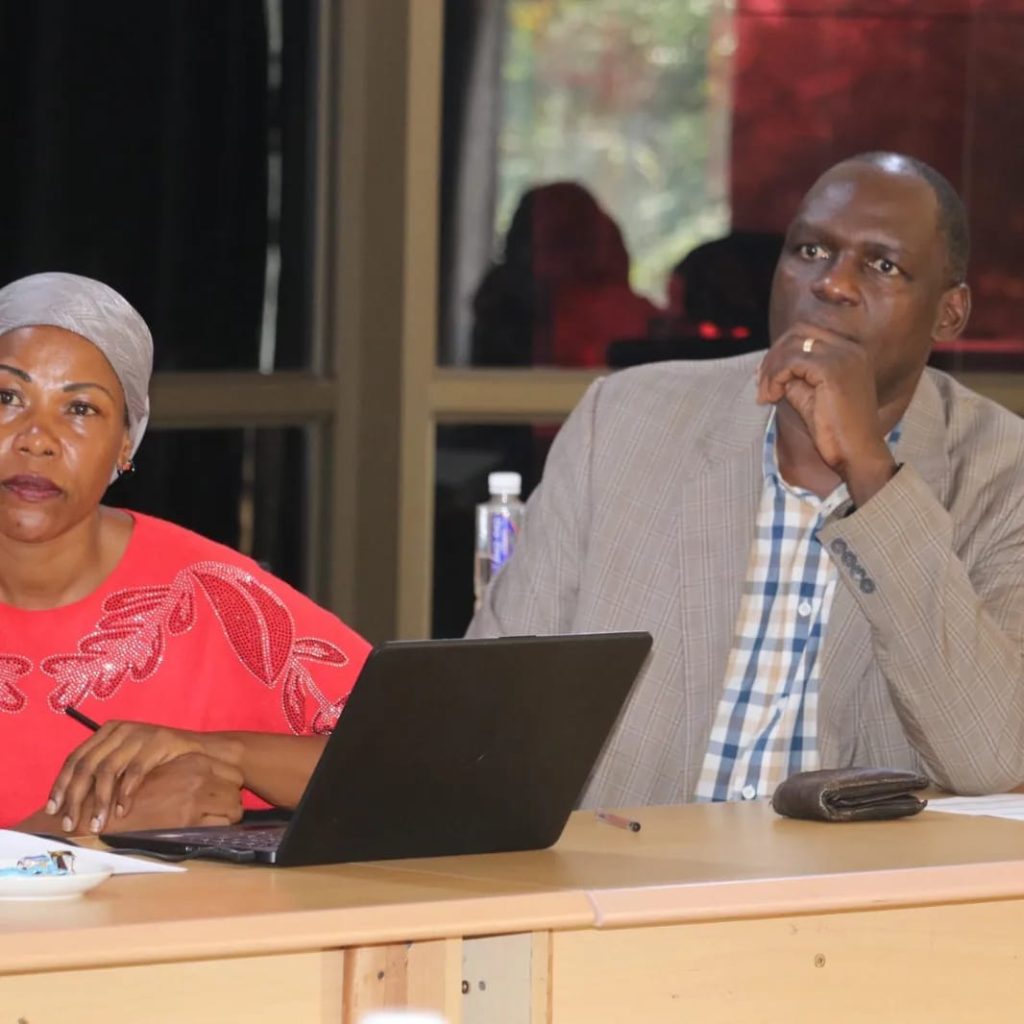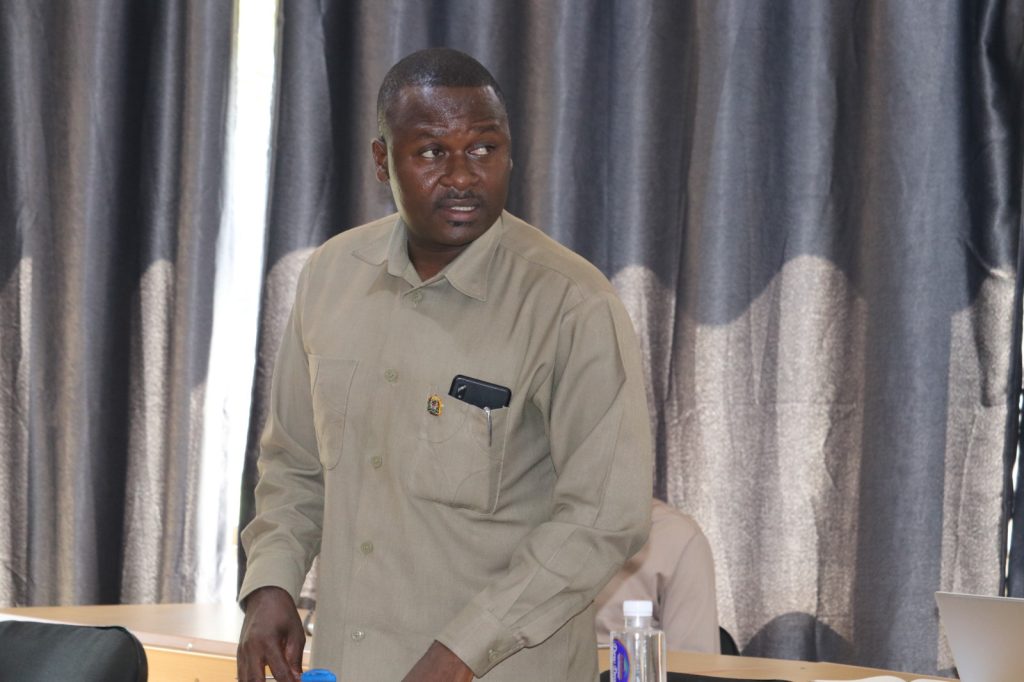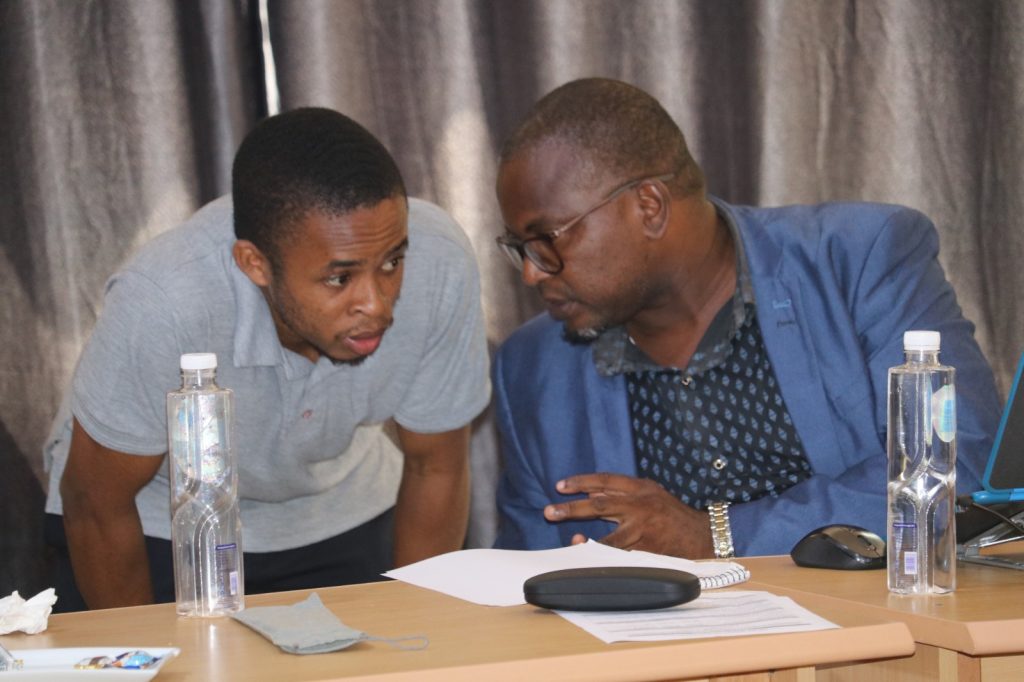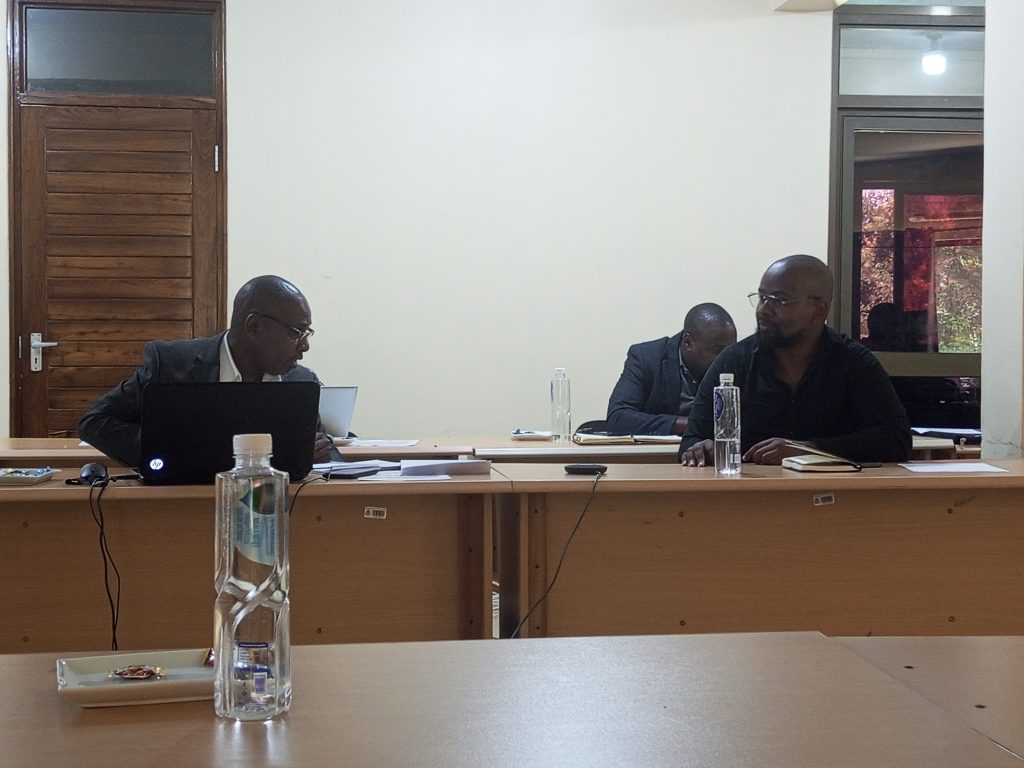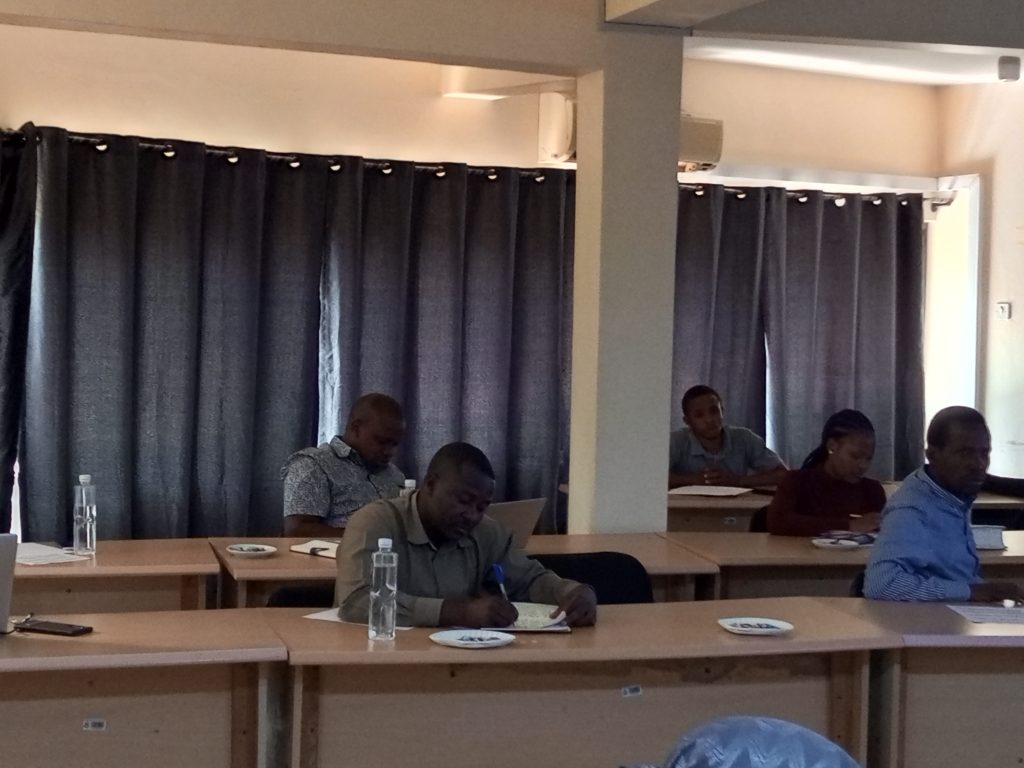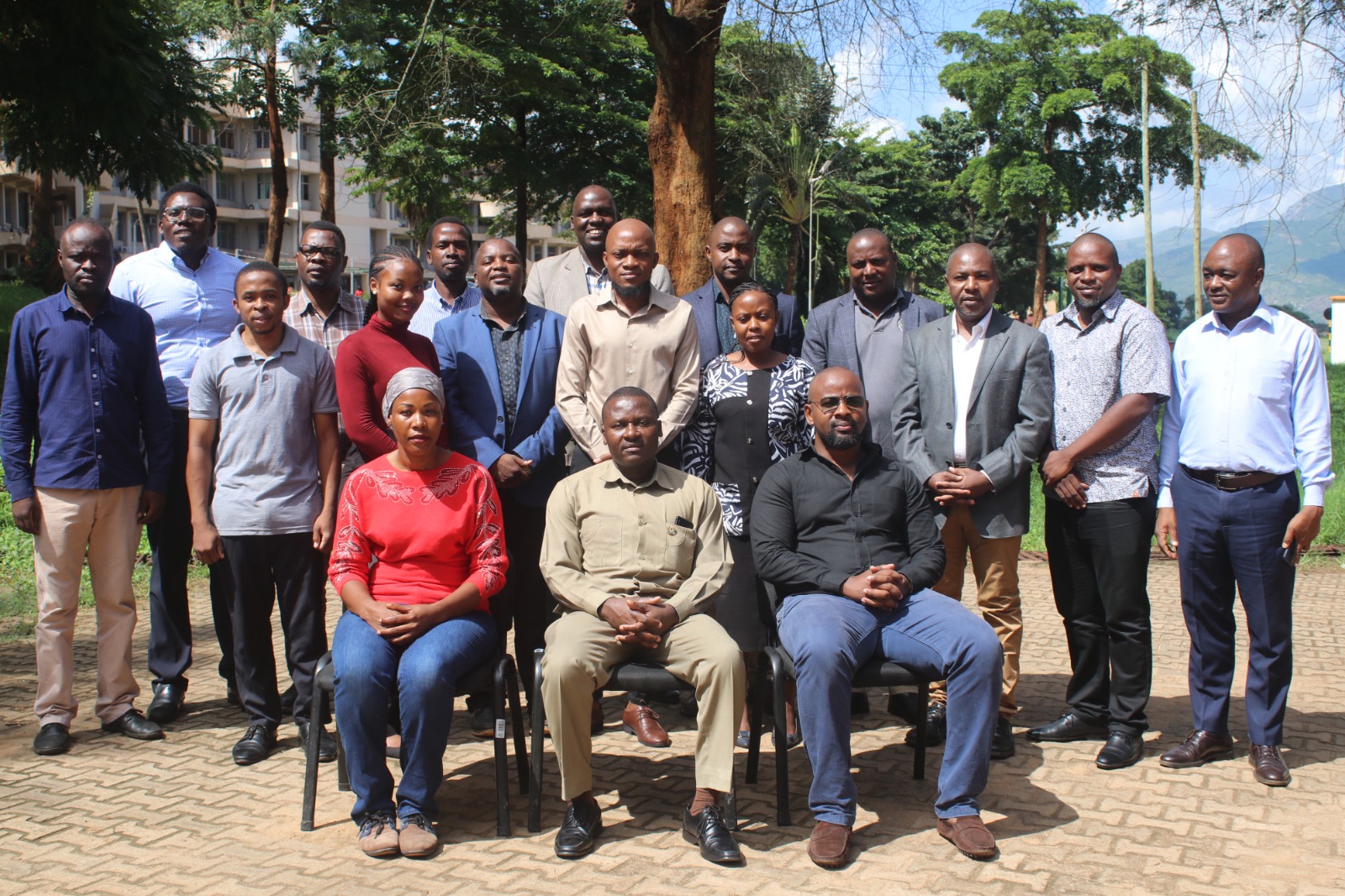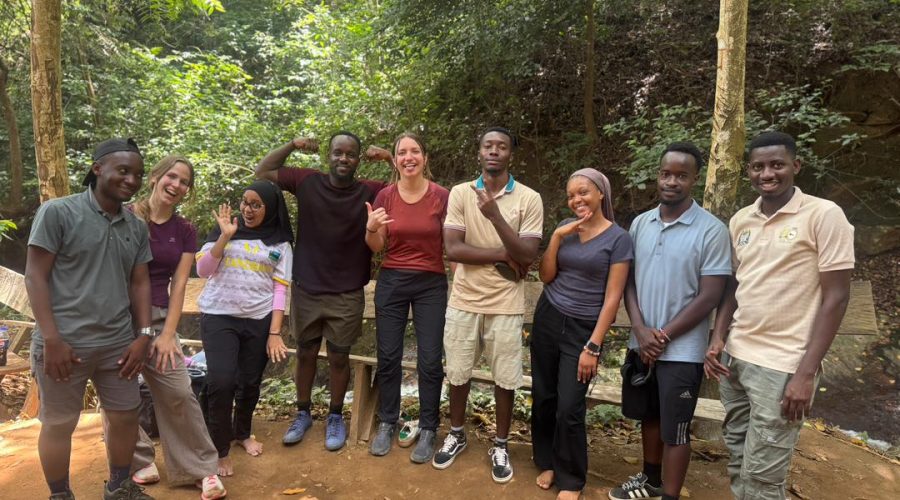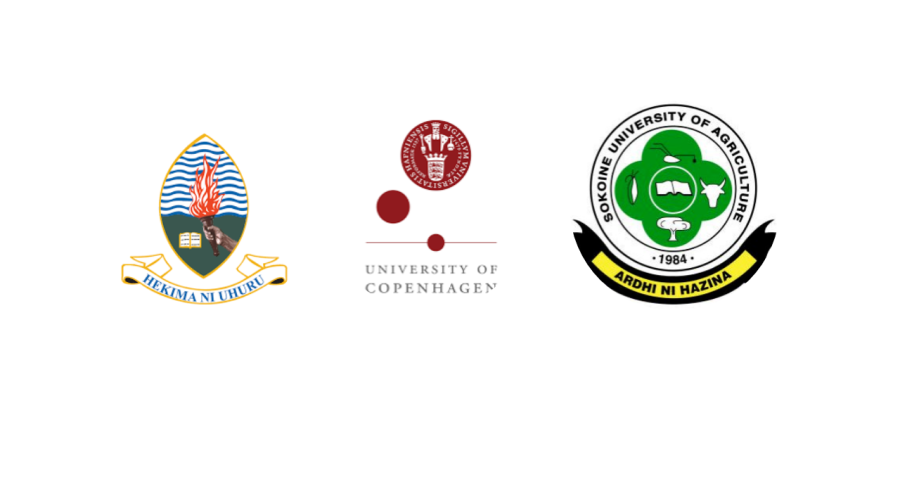The College Principal representative Dr. Greyson Nyamoga at the middle in a group photo with the Meeting members
Sokoine University of Agriculture (SUA) is currently implementing the Higher Education for Economic Transformation (HEET) project, a five-year venture aimed at strengthening the learning environment and labor market alignment of priority programs. The project, in partnership with the Government of Tanzania and the World Bank, has allocated significant funds to support the construction and repair of infrastructure, improve curricula, purchase equipment, and facilitate staff training.
As part of the project, SUA is planning to introduce 32 new degree programs and has been allocated 73.6 billion Tanzanian shillings for infrastructure development and maintenance, curriculum improvement, and equipment purchase. The objective of the HEET project is to increase enrollment and improve the quality and labor market relevance of degree programs in priority areas such as Forestry, wildlife conservation, tourism and hospitality, Agriculture and agribusiness and education. The project will provide a combination of university-level investments in improving the quality of learning environments and programs, with a focus on areas to improve teaching and learning, student spaces, and higher education data systems.
These ongoing efforts by SUA under the HEET project are expected to ensure the quality delivery of education and produce graduates who meet the demand and standard of the current and future labor market, ultimately contributing to the economic transformation of Tanzania.
Sokoine University of Agriculture (SUA) has been involving various external stakeholders to ensure that the curriculum meets the needs of the industry and the employment market. On December 15, 2023, SUA held a meeting with external stakeholders from the areas of wildlife and tourism, including the Ministry of Natural Resources and Tourism (MNRT), Traffic International East Africa (TIEA), and the Hotels Association of Tanzania (HAT), together with wildlife and tourism students.
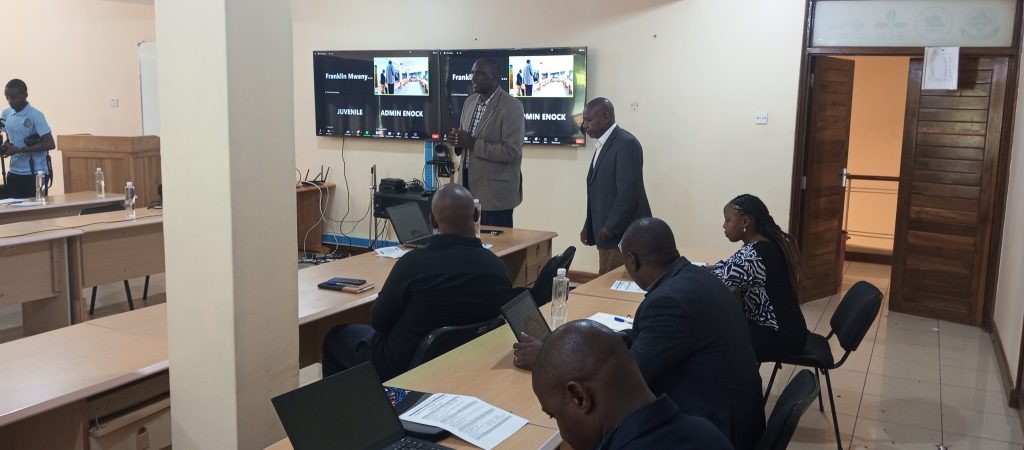
The Host Dr. Ernest Mwamwaja Leading the meeting with invited guests and stakeholders
The stakeholders provided constructive ideas on how the newly improved curriculum can accommodate important matters to meet market demands while also being in line with the evolution of science and technology in the industry of wildlife and tourism in Tanzania.
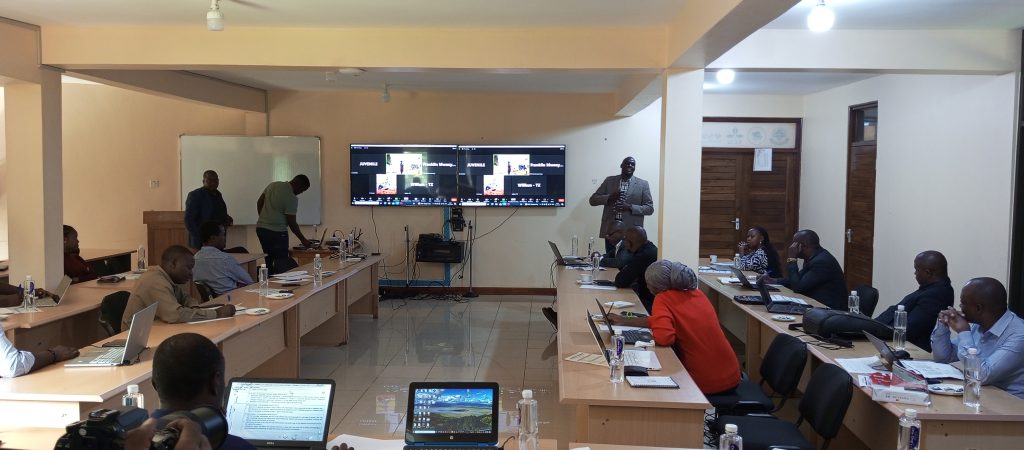
Members of the meeting listening to one of the member who participated the meeting via zoom
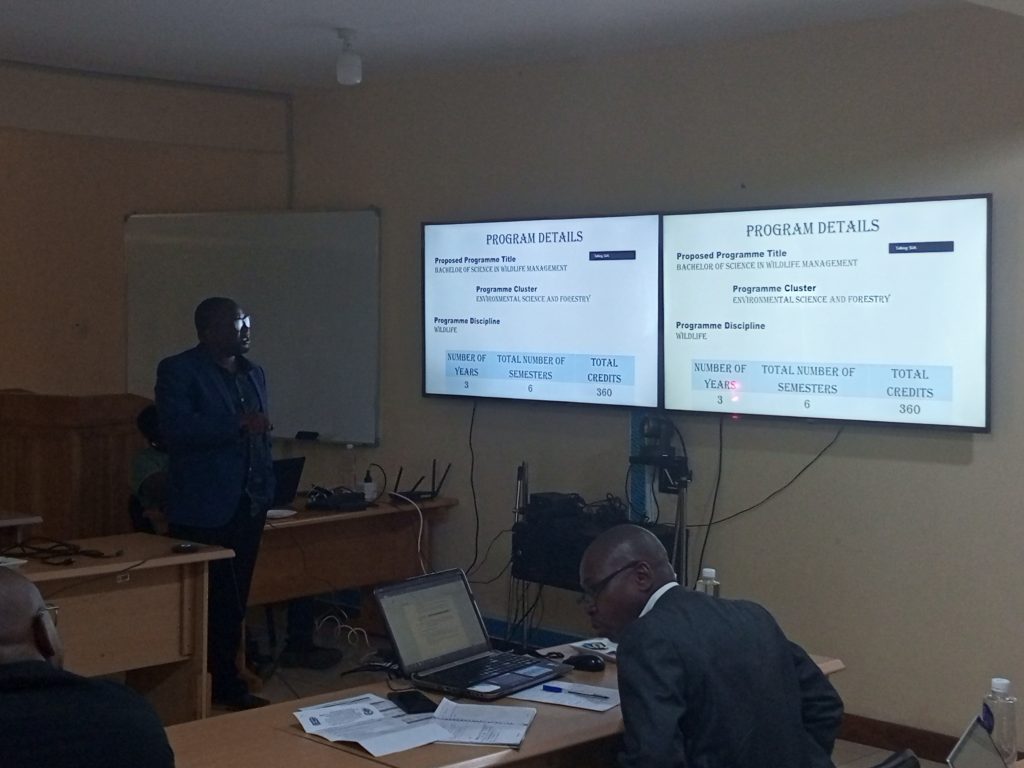
Dr. Amani Kitegile from the Department of wildlife management presenting BSc. Wildlife Management Curriculum
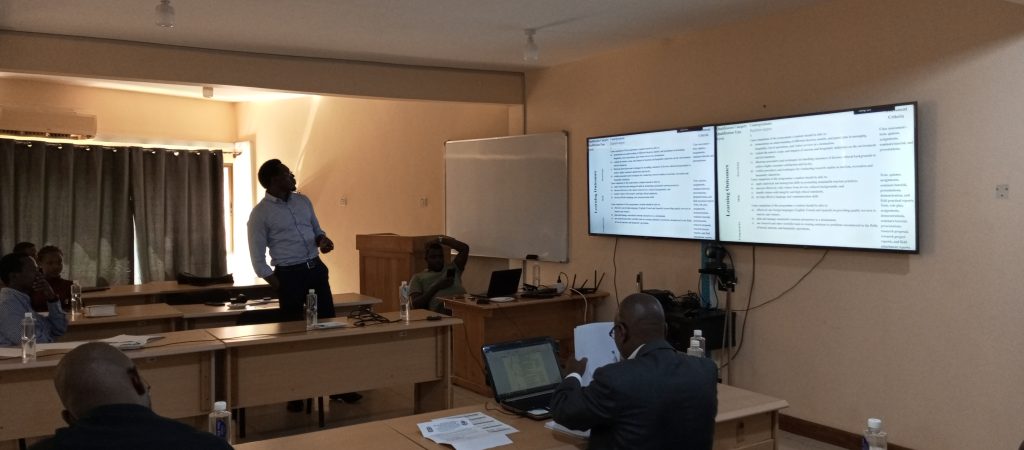
Dr. Peter Marwa from the Department of Tourism and recreation presenting BSc. Tourism Management curriculum
These efforts are part of the ongoing HEET project, which aims to strengthen the learning environment and labor market alignment of priority programs, including agriculture and agribusiness, wildlife conservation, tourism and hospitality, and education. The project has allocated significant funds to support infrastructure development and maintenance, curriculum improvement, equipment purchase, and staff training. These efforts are expected to produce graduates who meet the demand and standard of the current and future labor market, ultimately contributing to the economic transformation of Tanzania.
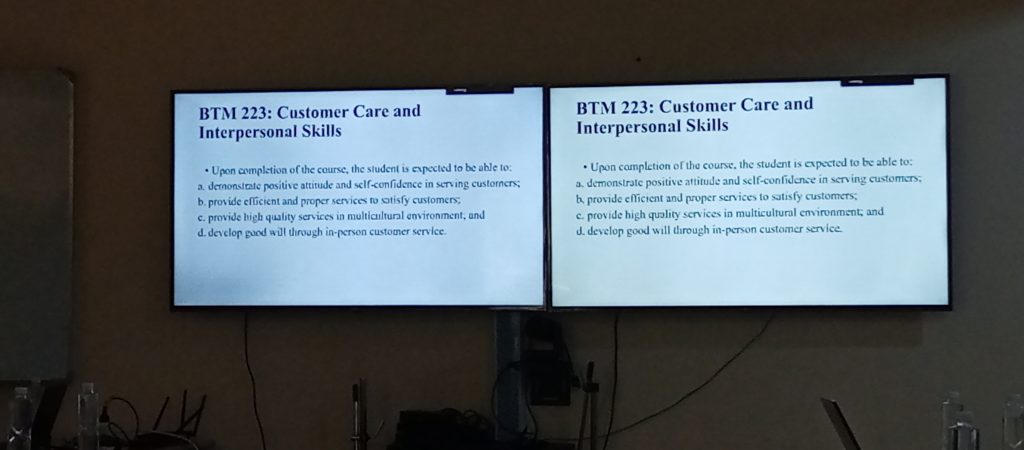
Customer care and interpersonal skills, one of the course subject that received major advices from stakeholders
Elirehema Mruto, one of the invited stakeholders, emphasized the importance of including cross-cutting issues like climate change, digital transformation, and industrial linkage in the wildlife and tourism curriculum. He highlighted the need for students to gain a good combination of skills and knowledge, which can be achieved by exposing them to various aspects of the industry. Prof. John Mgonja, a senior lecturer and head of the Department of Tourism and Recreation at SUA, agreed with Mruto’s suggestions. He shared that the current curriculum already includes field attachments for students, with first-year students visiting national parks, second-year students visiting various selected wildlife and tourism sections across the country, and third-year students going to field attachments depending on their interests in future employment areas like community-based tourism and food production in hotels.
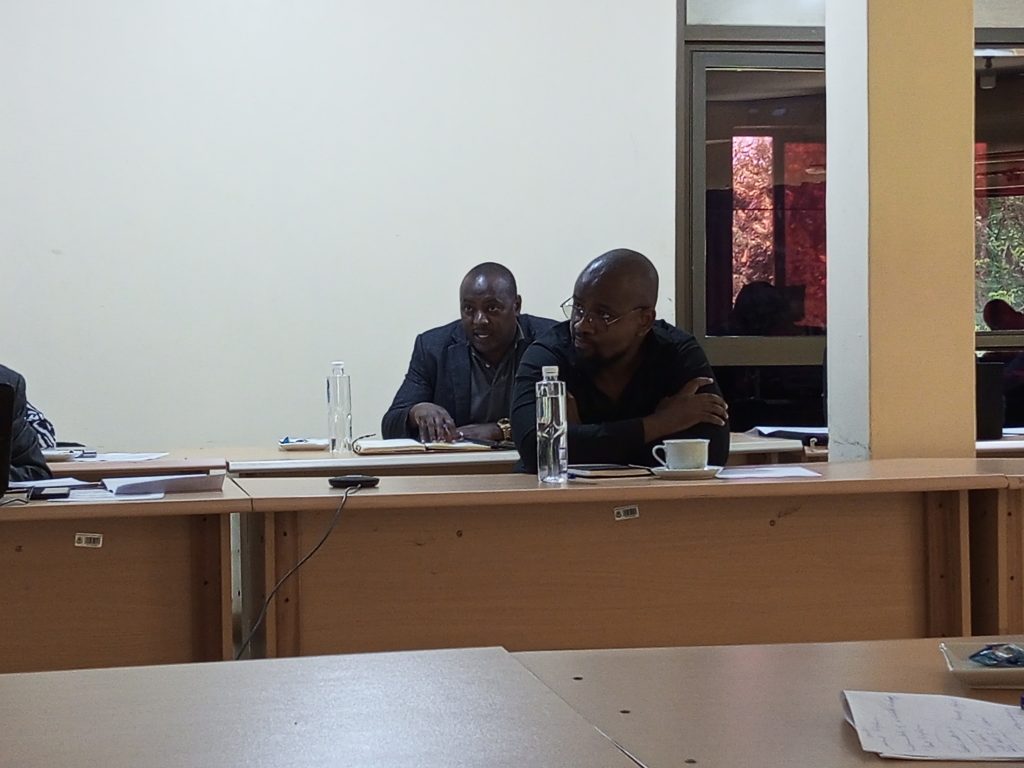
Mr. Elirehema Mruto, an invited stakeholder speaking during the meting
Additionally, stakeholders advised that integrating forest, wildlife, and tourism issues is inevitable, as wildlife activities depend on forests, and tourism activities depend on wildlife. They also emphasized the importance of teaching statistics courses early in the curriculum, as they have a significant impact on decision-making in the tourism sector regarding market needs and analysis.
Mr. Goodluck Mdumi, who represented the Ministry of Natural Resources and Tourism for the Eastern zone, emphasized the importance of including global tourism trends in the curriculum update. He stated that traditional ways in the tourism and hospitality industry are being left behind at the global level, and students should have knowledge on alternative accommodation facilities, digital transformation, especially app development. Mr. Mdumi also highlighted the importance of climate change issues and customer care and ethics in the tourism sector as visitors preffers Environmentally friendly destinations. In response, Prof. John Mgonja, a senior lecturer and head of the Department of Tourism and Recreation at SUA, agreed with the recommended inclusions in the updated curriculum. He stated that these topics would be included in the upcoming improved curriculum.
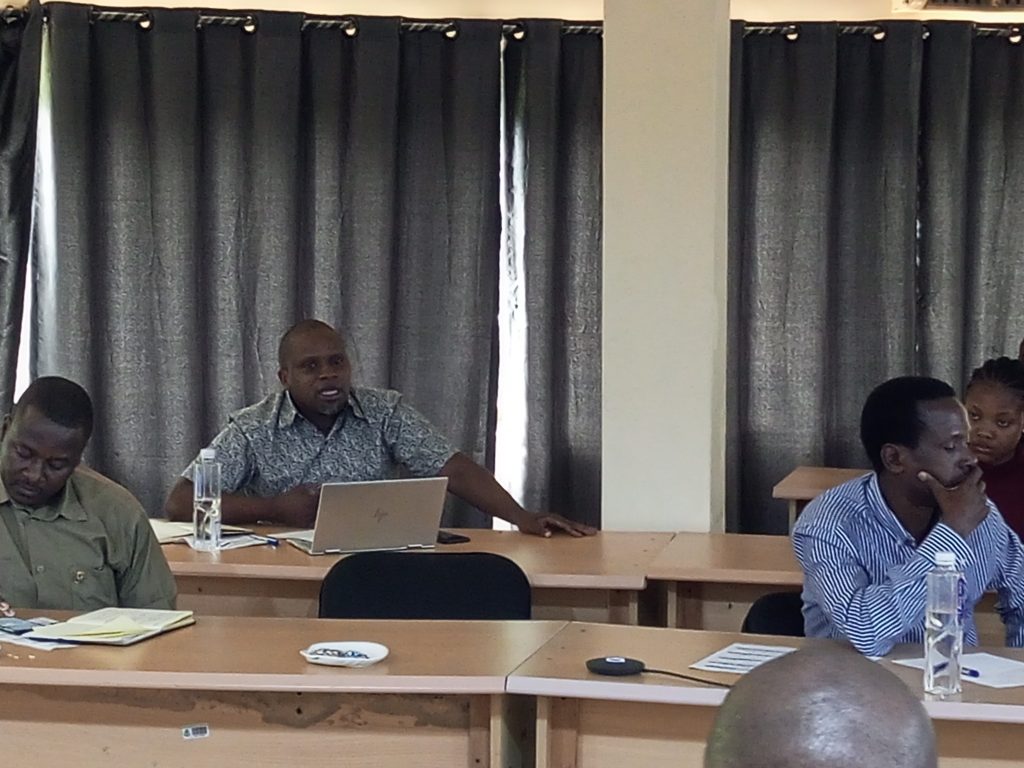
Mr. Goodluck Mdumi from the Ministry of Natural Resources and Tourism for the Eastern zone speaking during the meeting
William Malya, who represented Traffic International East Africa, emphasized the inclusion of Artificial Intelligence (AI) in tourism studies. He stated that the world is moving towards a digital way of running things in a simplified manner, and students should have knowledge of AI. Mr. Malya also highlighted the need for uniformity in tourism operations between Tanzania Mainland and Zanzibar islands, as some issues that are legal in Zanzibar may be considered illegal in the mainland.
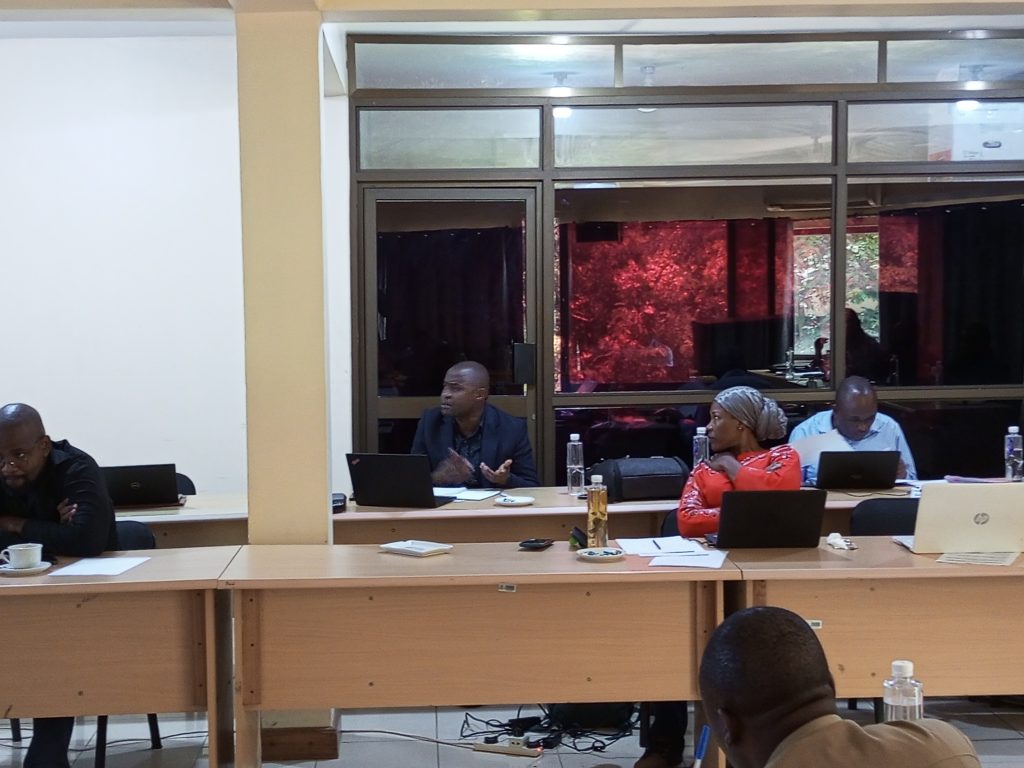
Mr. William Malya, who represented Traffic International East Africa speaking during the meeting
He also, emphasized the need to include Artificial Intelligence (AI) in tourism studies, reflecting the global shift towards digitalization in the industry. He also advocated for the inclusion of tourism policy as a core subject, given its foundational importance in understanding the tourism sector. Additionally, Mr. Malya suggested the inclusion of the Chinese language in the curriculum, considering the potential increase in the number of tourists from China in recent years. Furthermore, he highlighted the importance of the university focusing on improving practical skills, which are in high demand in the workplace.
These recommendations align with global trends in educational tourism, which emphasize experiential and cross-disciplinary learning, as well as the integration of technology and sustainability in tourism education. Moreover, the inclusion of tourism policy and the Chinese language in the curriculum reflects the evolving needs of the industry and the growing importance of catering to diverse tourist demographics and global trends.
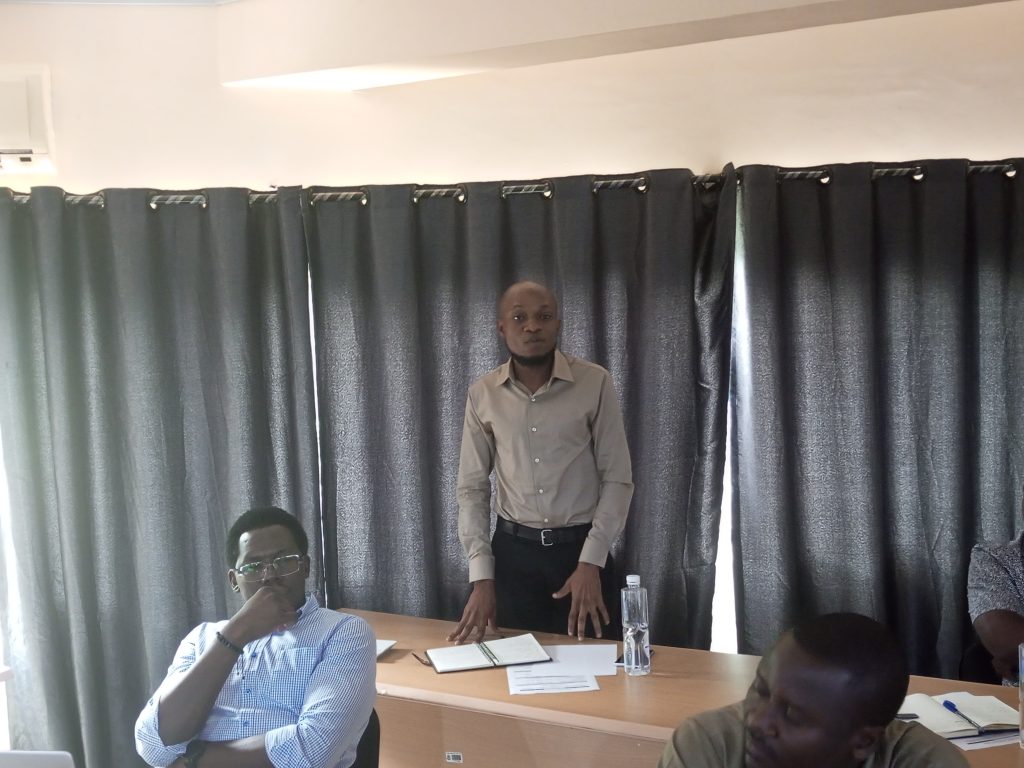
BSc. Tourism Management student, Mr. Muheza Ewice contributing his views on how the curriculum should be shaped to meet the current tourism market needs
Francisca Malembeka, a principal wildlife officer from the Ministry of Natural Resources and Tourism, emphasized the importance of leisure purposes in tourism education, as tourists visit for leisure and relaxation. She also highlighted the need to include languages, particularly English, German, and Chinese, in the curriculum, given the increasing number of tourists from these countries in recent years. Furthermore, she suggested that students should be taught emerging issues like medical tourism, as Tanzania’s hospitals, such as Muhimbili and Mloganzila, are performing well in providing quality health services at international standards.
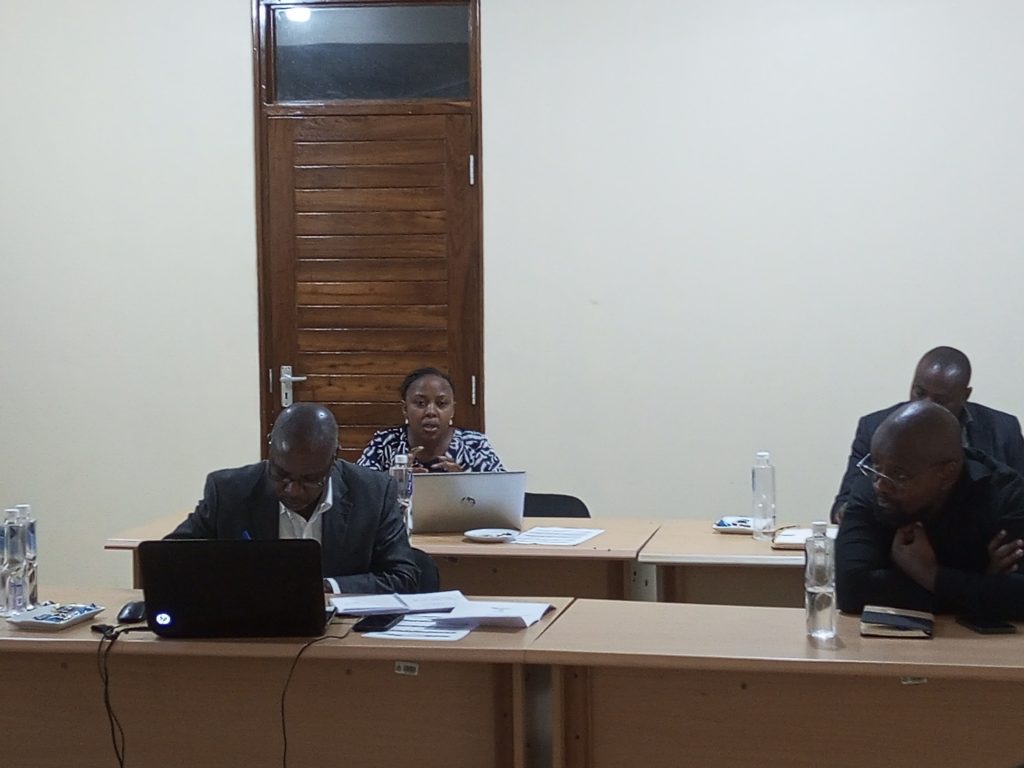
Francisca Malembeka, a principal wildlife officer from the Ministry of Natural Resources and Tourism speaking during the meeting
Mr. Kennedy Edward, the CEO of the Hotels Association in Tanzania, emphasized the importance of tourism policy as an introductory course for students, providing them with the fundamentals of courses for their first year of study. He highlighted the need for a clear distinction between consumptive and non-conservative practices in nature studies in tourism. Mr. Edward advised that the third year should focus on equipping students with practical skills to make them more aware of market needs. He posed a simple question, “For German couples visitors, who should be served first between a man and a woman?” to emphasize the importance of practical skills delivery.
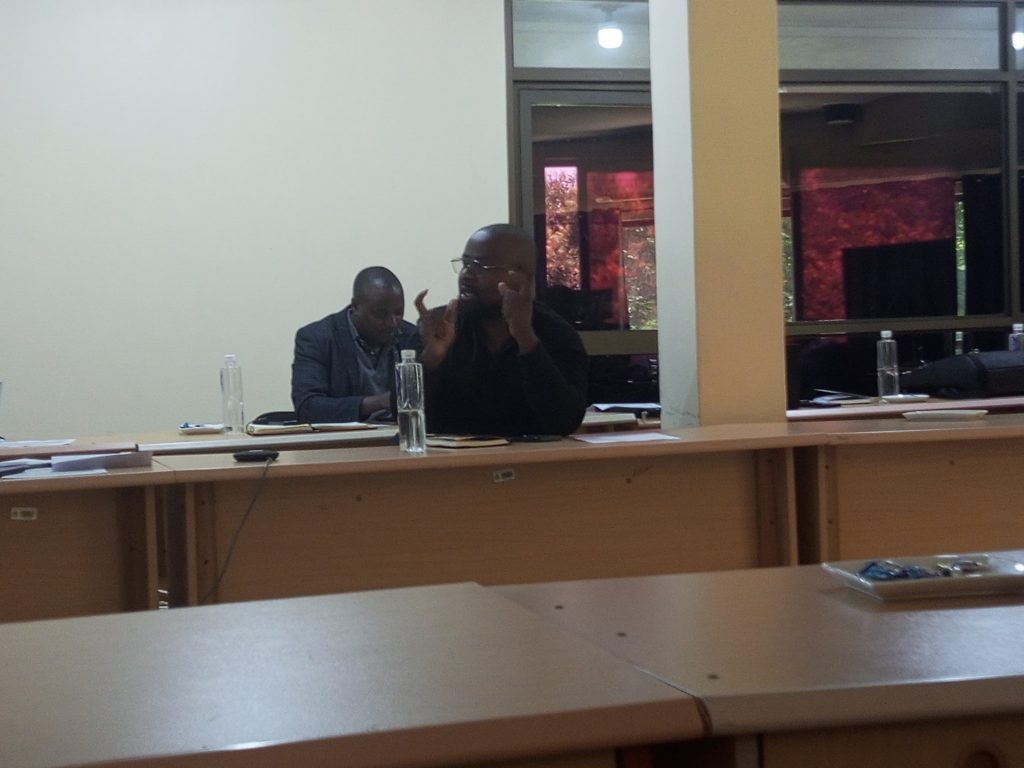
Mr. Kennedy Edward, the CEO of the Hotels Association in Tanzania, giving his views during the meeting
These insights highlight the need for a comprehensive and practical approach to tourism education, ensuring that students are well-prepared to meet the diverse needs of the industry. The focus on practical skills and the inclusion of emerging issues like medical tourism in the curriculum demonstrate SUA’s commitment to producing graduates who can cater to the evolving needs of the tourism and hospitality sector
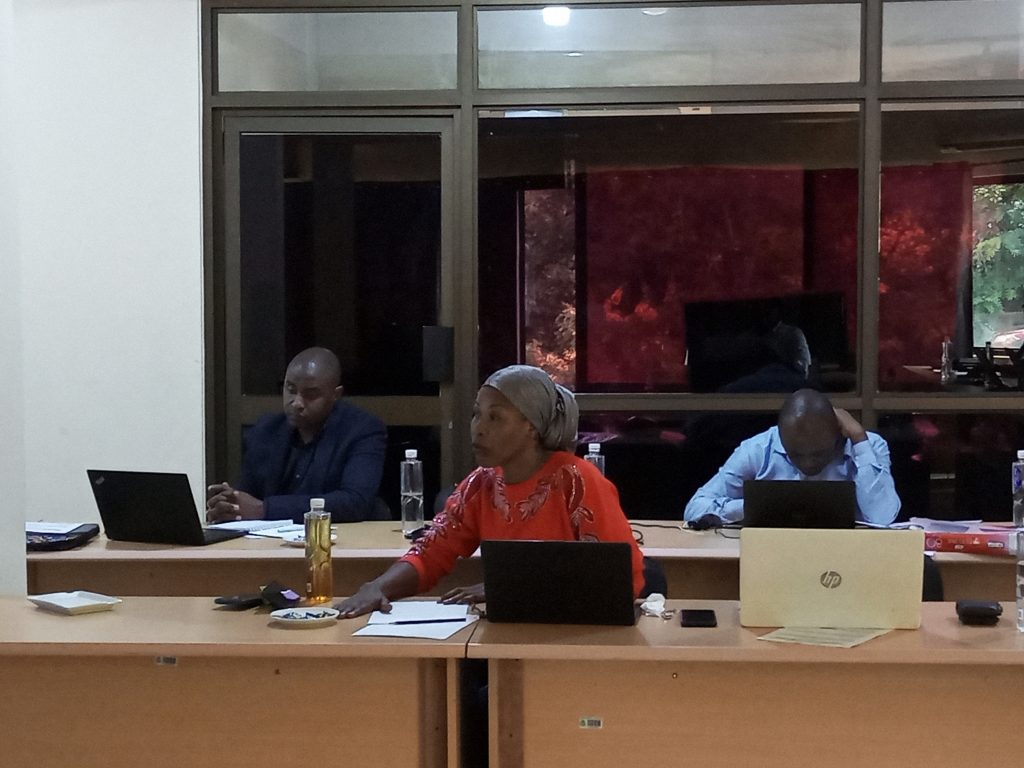
Dr. Halima giving her views during the meeting on the practice of borrowing courses from other department of more competence
